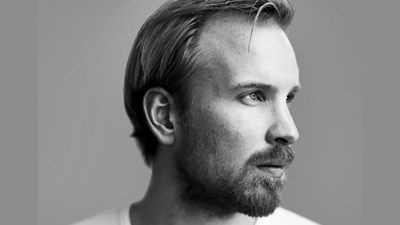- News
- The world doesn’t need more boring billionaires. It needs Robin Hoods
The world doesn’t need more boring billionaires. It needs Robin Hoods
Even as US President Donald Trump favours tax cuts for billionaires, Dutch historian Rutger Bregman—who became the “folk hero of Davos” after famously calling for the rich to stop preaching about philanthropy and pay more taxes in 2019 — is now asking the elite to use their talent and time to make the world a better place. Bregman—who popularised ideas like Universal Basic Income — speaks to Sharmila Ganesan Ram about his latest book, ‘Moral Ambition’.
Your last book, ‘Humankind: A Hopeful History’, argued that people are fundamentally decent. That felt like a warm hug while this feels more like a cold shower. Was that contrast intentional?
Yes, very much so. I was excited about a shift in science — across history, psychology, economics, anthropology — toward a more hopeful view of human nature. I wanted to show that we are, as some scientists say, the product of ‘survival of the friendliest’. But then I saw people posting pictures with my book on some beautiful beach in Bali, saying things like, “This book restored my faith in humanity. People should just stop watching the news and be happy.” And I thought, ‘Have I created a monster?’ So, ‘Moral Ambition’ is a kind of cold shower — hopefully a refreshing one — that motivates people to get up and actually make the world a wildly better place.
You say people should quit their “bullshit jobs” in favour of more socially impactful careers. Who are you speaking to?
But isn’t moral ambition only for those who can afford it?
I believe everyone can be morally ambitious. Look at Nelson Mandela. He worked as a security guard in a mine before becoming one of the greatest moral leaders in history. But yes, if you’re more privileged, you have a greater responsibility to make a difference. I talk in the book about the British abolitionist movement. It was the most successful anti-slavery movement in history, and it was founded by 12 people, 10 of whom were entrepreneurs. They had already achieved financial success and then asked, “Is this it?” Let’s be honest. Most wealthy people won’t be remembered. They behave predictably, like herd animals. But a rare few use their privilege to tackle the biggest challenges of their time. In the 18th century, it was slavery. Today, it might be factory farming or preparing for the next pandemic. So yes, everyone can be morally ambitious — but those with more power and privilege have a greater obligation.
You say idealists know what they’re against, but not what they’re for…
That’s a big issue. Martin Luther King didn’t say, “I have a nightmare”, he said, “I have a dream.” He had a clear, hopeful vision of a better world. Too often, progressives only have commandments: Don’t fly. Don’t eat meat. Don’t have kids. Don’t use plastic straws. But if the best you can do is reduce your carbon footprint to zero, then your ideal is to not exist.
It’s been several years since you supported the idea of a Universal Basic Income. In India, it’s been gaining traction and already women in several states are getting the benefit of cash transfers. Do you think that’s the best way to alleviate poverty?
Absolutely — and I’d say it’s because of India’s scale and complexity that UBI can work, not despite it. UBI is essentially venture capital for the people. It’s the most direct, cost-effective way to help the poor. And people know what they need far better than any govt official or so-called expert. UBI trusts people to make those decisions for themselves. And importantly, it removes the middleman. It can bypass barriers like bureaucracy and corruption. That’s why I believe UBI could be a transformative tool. I’d love to see India lead the way on this.
Your speech in Davos calling for higher taxes on the ultra-wealthy went viral. What makes you champion this cause?
Everywhere — from the US to the Netherlands to India — we see a clear pattern: billionaires pay lower effective tax rates than the middle class. It’s unjustifiable and it’s something we can change. That’s why I co-founded the School for Moral Ambition. We’re building a movement of talented professionals — bankers, lawyers, wealth managers — who want to work on fixing this. We’ve already won the battle of public opinion. Now comes the hard part: designing and implementing real, enforceable legislation. Because taxes get complicated fast, and the ultra-rich have entire teams working to ensure they pay as little as possible.
At the School for Moral Ambition, we see ourselves as Robin Hoods of talent — diverting brilliance from serving wealth to serving justice. I’ve met many rich people — and to be honest, most of them are boring and childish. Another boat, another house, another car. I’d much rather see that wealth put toward things that actually matter. Even in India where there is a growing billionaire class, we need both more taxation and more effective philanthropy.
You recently moved from Holland to the US—the “belly of the billionaire beast.” What triggered the move?
I moved to launch the US chapter of the School for Moral Ambition. We started in Europe last year, and the momentum has been incredible—8,000 members from over 80 countries already. These are people who want to pivot their careers or use their resources to tackle the big moral challenges of our time. The US right now is at a moral crossroads. As Senator Cory Booker put it, we’re living through a “moral moment.” There’s a very real risk of an autocratic breakthrough. So this is the time for people—especially those with privilege and power—to step up and help safeguard democracy.
End of Article
Follow Us On Social Media

